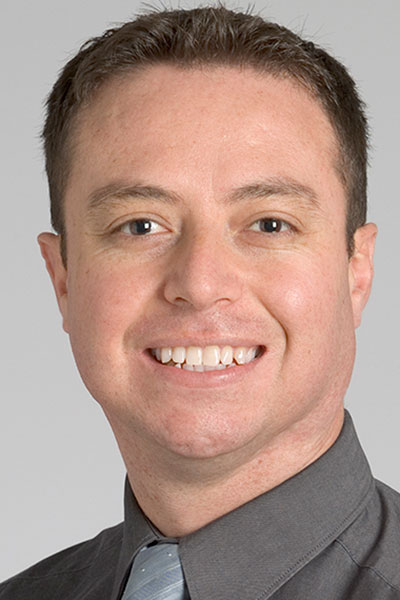
The annual Clinical Year in Review will begin on Sunday, May 21, at the ATS 2023 International Conference with the first of four sessions highlighting the most impactful papers across pulmonary, critical care, and sleep medicine. Each day of the series will feature a unique lineup of topics.
“The sessions will highlight the top four or five articles in each field and talk about the clinical relevance of the papers, so attendees will be walking out not only with an idea of what is new and interesting in each field, but also how this is going to relate to their practice, how it might change their practice,” said Clinical Year in Review Chair Rupal Shah, MD, MS, a pulmonologist and co-director of the Interstitial Lung Disease Program at the University of California, San Francisco.
Experts will discuss recent literature in pulmonary vascular disease, interstitial lung disease, chronic obstructive pulmonary disease, acute lung injury, and acute respiratory distress syndrome in Clinical Year in Review 1 from 9–10:30 a.m. ET in Hall E (Level 2) of the Walter E. Washington Convention Center.

Gustavo A. Heresi, MD, MSci, will discuss papers on pulmonary vascular disease, including promising results from a study of the use of a fusion protein in the treatment of pulmonary arterial hypertension. Dr. Heresi is the director of the Pulmonary Vascular and Chronic Thromboembolic Pulmonary Hypertension Program in the Department of Pulmonary and Critical Care Medicine in the Respiratory Institute at Cleveland Clinic.
“We are on the brink of having a new molecular pathway targeted by medical therapy for the first time in more than 15 years,” Dr. Heresi explained. “Sotatercept, a new first-in-class drug that restores the balance between pro-proliferative and anti-proliferative signals in the pulmonary vasculature, met the primary and all but one secondary endpoints in the phase three STELLAR trial.”
He also will discuss the first clinical report of the PVDOMICs study, which has the potential to redefine the classification of pulmonary hypertension through deep clinical and omics phenotyping, and the results of the RACE trial, which examined the role of medical therapy and balloon pulmonary angioplasty for the treatment of chronic thromboembolic pulmonary hypertension.
Last year, the European Society of Cardiology and the European Respiratory Society released updated guidelines for pulmonary hypertension. Dr. Heresi will explain what has changed, including the hemodynamic definition of pulmonary hypertension.
“Both the mean pulmonary artery pressure and the pulmonary vascular resistance cutoffs have been lowered to 20 mmHg and 2 Wood units, respectively,” he said. “It remains to be determined the impact this new definition will have on clinical care and future clinical trials.”
Also, in 2022, a Lancet Commission Report on COPD outlined innovative recommendations for disease prevention, diagnosis, and treatment with the lofty goal of eliminating the third leading cause of death worldwide.

“These are not necessarily guidelines to be used in the clinical realm, but ways to push boundaries in COPD to rethink the disease,” said Stephanie Christenson, MD, MS, associate professor of medicine, University of California, San Francisco. “We can potentially intervene at an earlier stage to prevent end-stage disease, which is where we most often capture the disease in our patients.”
She will review papers on COPD from the past year, including updates to the Global Initiative for Chronic Obstructive Lung Disease guidelines for management of this disease.
“They are suggesting different initial treatments for the management of COPD if you’re symptomatic or have exacerbations,” Dr. Christenson said. “They’re suggesting we use dual bronchodilators—a long-acting beta-2 agonist and a long-acting muscarinic antagonist—and that is very new.”
The U.S. Preventive Services Task Force also released a reaffirmation of its recommendation against screening for COPD with lung function testing for current or former smokers who do not have symptoms or exacerbations.
Another paper published in the Journal of the American Medical Association suggested primary care physicians should be screening for COPD using a questionnaire combined with the peak expiratory flow rate test.
“If you screen positive on that test in a primary care setting, it’s pretty specific that you’re a lot more likely to have COPD, and so those would be a group of people who you could send for lung function testing,” Dr. Christenson said.
Derek W. Russell, MD, assistant professor, University of Alabama at Birmingham, will discuss recent publications on ALI/ARDS, and Rachel K. Putman, MD, MPH, instructor in medicine, Brigham and Women’s Hospital, will discuss the latest papers on ILD.
All of the Clinical Year in Review sessions take place in Hall E. Part 2 takes place from 9–10:30 a.m. on Monday, Part 3 from 9–10:30 a.m. on Tuesday, and Part 4 from 8–9:30 a.m. on Wednesday.
This session and the International Conference are supported by independent medical educational grants from AstraZeneca LP; Boehringer Ingelheim Pharmaceuticals, Inc.; Actelion Pharmaceuticals US, Inc., a Janssen Pharmaceutical Company of Johnson & Johnson; Merck & Co.; Chiesi USA, Inc.; and United Therapeutics Corporation. All CME sessions have been planned and implemented in accordance with the Accreditation Criteria of the Accreditation Council for Continuing Medical Education (ACCME®) and are free of the control of ineligible companies (formerly commercial interests).
REGISTER FOR ATS 2024
Register today for the ATS 2024 International Conference! Don’t miss this opportunity to take part in the in-person conference, May 17-22 in San Diego. Join your colleagues to learn about the latest developments in pulmonary, critical care, and sleep medicine.
Not an ATS member? Join today and save up to $540.
